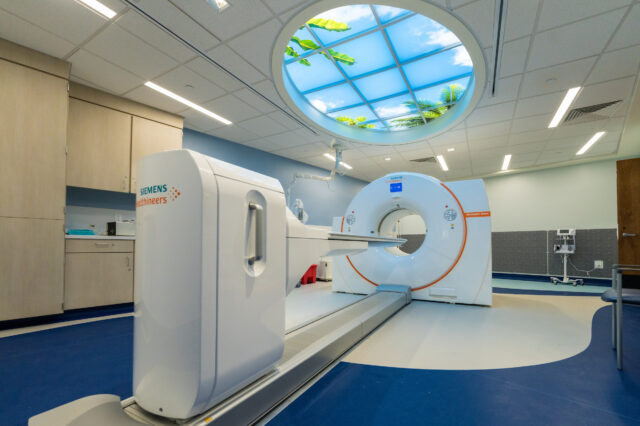Magnetoencephalography (MEG)
Welcome to the Magnetoencephalography (MEG) Lab at the UF Health Dorothy Mangurian Neuroimaging Center. Within this lab, state-of-the-art technology unravels the complexities of the brain and nervous system.
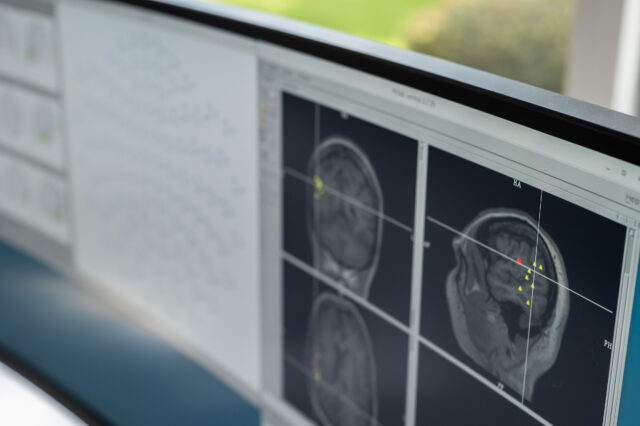
Our advanced MEG technology is a valued tool for patients with epilepsy or brain tumors, with promising applications for many nervous system issues and neurological disease. The MEG is also pioneering clinical trial initiatives, allowing for meaningful findings in neurology. UF Health's neurology department is home to one of approximately 200 MEGs available worldwide, and the only MEG in the southeastern United States.
At UF Health Neurology, we are rising above the national average in number of patients treated with MEG technology. With this state-of-the-art device, our team of expert neurologists and researchers are gaining a better understanding of neurological care and disease, including epilepsy and epilepsy surgery, movement disorders, dementias, stroke, brain tumor surgery and more. The MEG is also paving the way for advancements in pediatric neurology and patient care.
We invite you to be a part of our journey, where innovation and compassion converge to make a lasting difference in the lives of those we serve.
Inside our lab
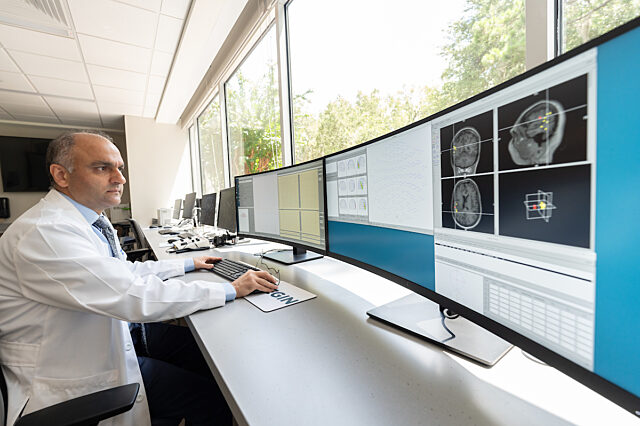
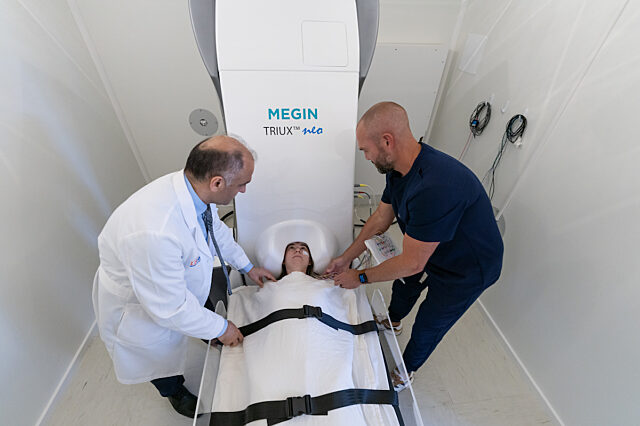
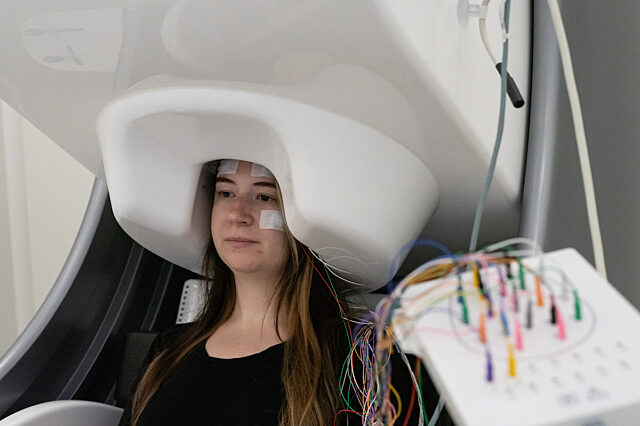
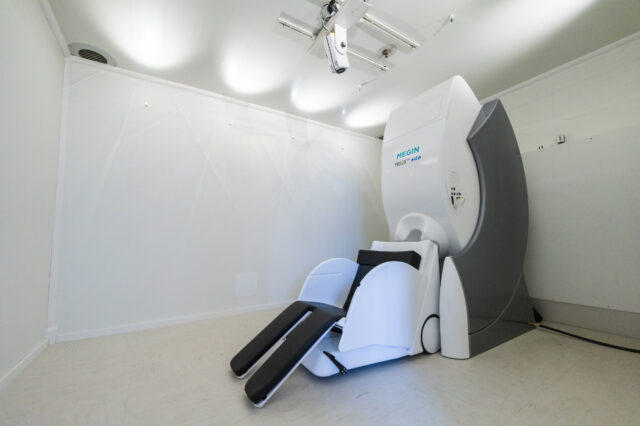
Common questions
1. What is magnetoencephalography (MEG) and how can it benefit me?
MEG is a non-invasive neuroimaging technique that records the magnetic fields generated by neural activity in the brain. It can benefit patient care by providing valuable insights into neurological function and assisting your neurologist in the diagnosis and treatment of neurological conditions and disease.
2. Is MEG safe? Are there any risks involved?
MEG is safe and non-invasive. There are no known risks associated with MEG scans, as it does not use radiation or require the injection of contrast agents.
3. Who can benefit from MEG services at UF Health MEG Lab?
MEG services at UF Health are designed for patients with neurological conditions and disease, such as epilepsy, a brain tumor, Alzheimer’s, Parkinson’s, movement disorders and other nervous system disorders. The MEG is also being utilized in research settings, helping assess individuals participating in studies focused on brain function.
4. What is the process for scheduling a MEG scan?
To schedule a MEG scan, please contact our MEG Lab scheduling department. They will guide you through the process, including required paperwork and appointment availability.
Pediatric neurology
Early detection and diagnosis can yield enhanced outcomes for pediatric neurology patients. With the MEG's adjustability, our providers have been able to help young neurological patients with state-of-the-art diagnostic scans.

For physicians
If you wish to refer one of your patients for a MEG scan, kindly fill out our patient referral form.
Should you require additional information or assistance, please do not hesitate to reach out to us through the following contact details:
- Phone: (352) 733-1718
- Fax: (352) 733-3053
- Email: MEGLab@shands.ufl.edu
Location and parking
-
Imaging Practice UF Health Dorothy Mangurian Neuroimaging Suite

Once you enter the Fixel Institute campus, there is free parking anywhere in the visitors and patient parking areas. Use the walkway to enter the Imaging and Research Building. The MEG lab is located inside the building within the UF Health Dorothy Mangurian Neuroimaging Suite. Let the receptionist know you have arrived for your scheduled MEG scan.
